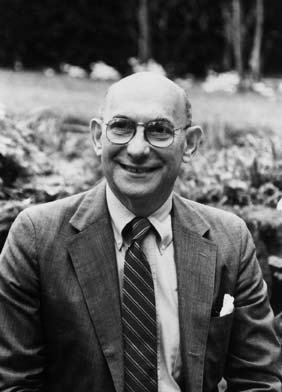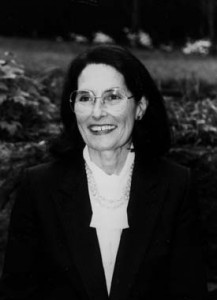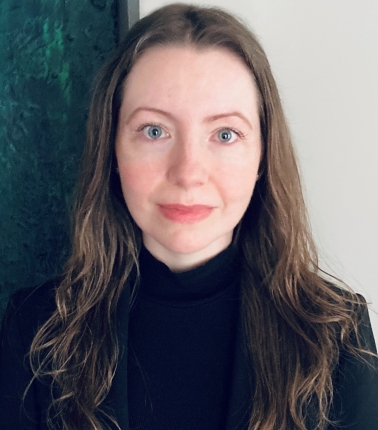 JACOB I FABRIKANT was a pioneer in environmental radiology. Dr. Fabrikant’s extensive research on radiation effects on cell kinetics led to his lifelong interest in low-level radiation effects in human populations. He was internationally known for using scientific evidence on radiation risks and health effects to protect the public’s health. He was a principal founder of the concept and the development of “radiosurgery,” the use of high-energy radiation generated by accelerators in the high precision treatment to eradicate hard-to-reach diseased tissues in the brain. A compassionate and caring physician, beloved by his patients, Dr. Fabrikant died in 1993.
JACOB I FABRIKANT was a pioneer in environmental radiology. Dr. Fabrikant’s extensive research on radiation effects on cell kinetics led to his lifelong interest in low-level radiation effects in human populations. He was internationally known for using scientific evidence on radiation risks and health effects to protect the public’s health. He was a principal founder of the concept and the development of “radiosurgery,” the use of high-energy radiation generated by accelerators in the high precision treatment to eradicate hard-to-reach diseased tissues in the brain. A compassionate and caring physician, beloved by his patients, Dr. Fabrikant died in 1993.
After earning his medical degree from McGill University, Jacob Fabrikant trained in radiology at Hopkins. Following a PhD in biophysics from the University of London, he served on the faculties of both the Hopkins schools of Medicine and Public Health. He was named chair of radiology at the University of Connecticut and McGill University medical schools, later joining the faculty at the University of California at San Francisco and at Berkeley. A fellow of the American College of Radiology and a member of the Royal Society of Medicine of Great Britain, Dr. Fabrikant published extensively and served on national and international committees focusing on the biological and health effects of low-level radiation. He was appointed director of public health and safety on President Carter’s Commission on the Accident at Three Mile Island.
 His wife, IRENE B. FABRIKANT (1933-2011), a distinguished teacher and researcher, held a PhD in microbiology and immunology and studied biostatistics at Hopkins. Her work on the pathogenesis and prevention of human infectious diseases centered on vector-borne diseases. She was the first to discover the resurgence of dengue fever, a mosquito-borne disease, in Mexico. She served on the medical school faculties of the universities of Maryland and Connecticut and McGill. The recipient of many honors and awards, Irene Fabrikant was a consultant in environmental health sciences.
His wife, IRENE B. FABRIKANT (1933-2011), a distinguished teacher and researcher, held a PhD in microbiology and immunology and studied biostatistics at Hopkins. Her work on the pathogenesis and prevention of human infectious diseases centered on vector-borne diseases. She was the first to discover the resurgence of dengue fever, a mosquito-borne disease, in Mexico. She served on the medical school faculties of the universities of Maryland and Connecticut and McGill. The recipient of many honors and awards, Irene Fabrikant was a consultant in environmental health sciences.
The Fabrikant Chair supports continuing research on health risks related to radiation.
Held by Susan Chemerynski
 SUSAN CHEMERYNSKI, ScD, MPH, is the Jacob I. and Irene B. Fabrikant Chair in Health, Risk and Society and the Director of the Risk Sciences and Public Policy Institute in the Department of Health Policy and Management. Dr. Chemerynski is a risk scientist and leader dedicated to advancing risk and decision sciences to improve public health, by developing approaches and tools to understand and inform exposure and risk prevention and reduction strategies and to translate science into policy and practice. Her public health education and career have spanned from research to practice, across academia, consulting, and government in the areas of environmental health, risk assessment and management, and tobacco control and regulatory science. In her present roles, she is working to advance risk science, policy, and management for public health practice to address pressing health risk issues in our society and reduce health disparities.
SUSAN CHEMERYNSKI, ScD, MPH, is the Jacob I. and Irene B. Fabrikant Chair in Health, Risk and Society and the Director of the Risk Sciences and Public Policy Institute in the Department of Health Policy and Management. Dr. Chemerynski is a risk scientist and leader dedicated to advancing risk and decision sciences to improve public health, by developing approaches and tools to understand and inform exposure and risk prevention and reduction strategies and to translate science into policy and practice. Her public health education and career have spanned from research to practice, across academia, consulting, and government in the areas of environmental health, risk assessment and management, and tobacco control and regulatory science. In her present roles, she is working to advance risk science, policy, and management for public health practice to address pressing health risk issues in our society and reduce health disparities.
Prior to joining BSPH, Dr. Chemerynski has conducted research and worked to address environmental and occupational health issues concerning air pollution, pesticides and other chemicals, and urban and built environments, particularly considering complex and cumulative risk challenges, vulnerable populations, and aspects of variability and uncertainty. From 2013-2024, Dr. Chemerynski served in roles at the US Food and Drug Administration’s (FDA’s) Center for Tobacco Products’ Office of Science, including as the Risk and Decision Analysis Branch Chief. Over her time at FDA, she led multiple interdisciplinary groups as well as research programs and provided vision, expertise, and leadership to develop risk and decision science approaches for tobacco regulatory science. She has provided executive level leadership, strategic thinking, and advice to promote impactful change and effective programmatic and organizational growth, collaboration, and management. Dr. Chemerynski previously worked in environmental consulting and as faculty at the universities of Yale, Harvard and Brown. She holds a Doctor of Science degree in Environmental Science and Risk Management from Harvard School of Public Health, where she majored in Toxicology and Risk and Decision Sciences, a Master of Public Health degree in Environmental Health Sciences from Yale University School of Medicine and a Bachelor of Arts degree from Johns Hopkins University in Public Health.
 JACOB I FABRIKANT was a pioneer in environmental radiology. Dr. Fabrikant’s extensive research on radiation effects on cell kinetics led to his lifelong interest in low-level radiation effects in human populations. He was internationally known for using scientific evidence on radiation risks and health effects to protect the public’s health. He was a principal founder of the concept and the development of “radiosurgery,” the use of high-energy radiation generated by accelerators in the high precision treatment to eradicate hard-to-reach diseased tissues in the brain. A compassionate and caring physician, beloved by his patients, Dr. Fabrikant died in 1993.
JACOB I FABRIKANT was a pioneer in environmental radiology. Dr. Fabrikant’s extensive research on radiation effects on cell kinetics led to his lifelong interest in low-level radiation effects in human populations. He was internationally known for using scientific evidence on radiation risks and health effects to protect the public’s health. He was a principal founder of the concept and the development of “radiosurgery,” the use of high-energy radiation generated by accelerators in the high precision treatment to eradicate hard-to-reach diseased tissues in the brain. A compassionate and caring physician, beloved by his patients, Dr. Fabrikant died in 1993. His wife, IRENE B. FABRIKANT (1933-2011), a distinguished teacher and researcher, held a PhD in microbiology and immunology and studied biostatistics at Hopkins. Her work on the pathogenesis and prevention of human infectious diseases centered on vector-borne diseases. She was the first to discover the resurgence of dengue fever, a mosquito-borne disease, in Mexico. She served on the medical school faculties of the universities of Maryland and Connecticut and McGill. The recipient of many honors and awards, Irene Fabrikant was a consultant in environmental health sciences.
His wife, IRENE B. FABRIKANT (1933-2011), a distinguished teacher and researcher, held a PhD in microbiology and immunology and studied biostatistics at Hopkins. Her work on the pathogenesis and prevention of human infectious diseases centered on vector-borne diseases. She was the first to discover the resurgence of dengue fever, a mosquito-borne disease, in Mexico. She served on the medical school faculties of the universities of Maryland and Connecticut and McGill. The recipient of many honors and awards, Irene Fabrikant was a consultant in environmental health sciences.